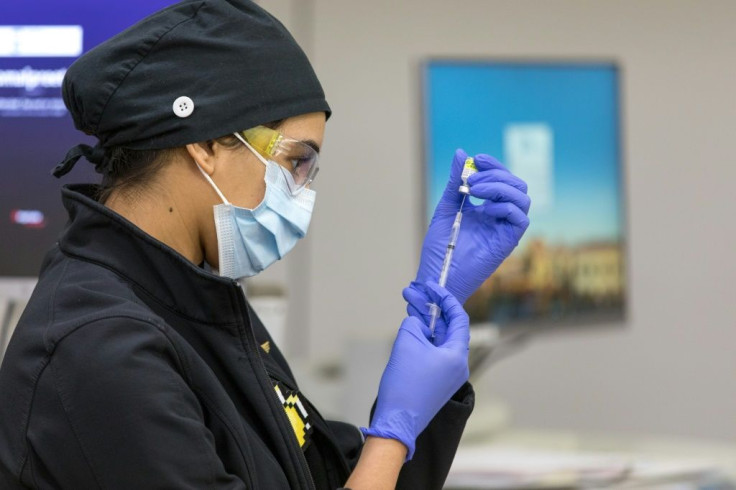COVID-19 May Cause Serious Complication In Kids: What Is MIS-C?
KEY POINTS
- The U.S. witnessed 2,617 cases of multisystem inflammatory syndrome in children (MIS-C) before March 1
- MIS-C is a condition where various parts of the body become inflamed, including the heart, kidneys and brain, among others
- Many children with MIS-C had the virus that causes COVID-19 or had been around someone with the illness, per the CDC
Most children who are diagnosed with COVID-19 experience only mild symptoms, but in rare cases, the virus can also lead to a complication called multisystem inflammatory syndrome in children (MIS-C). Here's what is known about the condition so far.
MIS-C is a rare but serious complication associated with the coronavirus. It is a condition where various parts of the body become inflamed, including the heart, kidneys, brain, skin, eyes and other organs, according to the Centers for Disease Control and Prevention (CDC).
It is not yet known what exactly causes the health condition. While some suffer from MIS-C despite testing negative for the virus, most cases involve children and adolescents who were diagnosed with COVID-19 or have been in contact with someone with COVID-19.
One of those who suffered from the condition was the son of a woman named Katherine Dunn, who said her 13-year-old child Nolan had chapped lips, a swollen tongue and bloodshot eyes and stomach that hurt to the touch by the time she brought him to the pediatrician's office, CNN reported.
Nolan was diagnosed with MIS-C after undergoing several tests and "had every single symptom you could think of." "I had an IV hooked up to me and felt fatigued and sore. My entire body just felt upset everywhere. I don't really know how to explain it or pinpoint to a singular feeling," he told CNN.
The 13-year-old was given a steroid and a 10-hour immunoglobulin drip. "By the next morning he was markedly better," his mom Katherine shared.
A study published in Jama Neurology suggested neurologic symptoms are common among children hospitalized for COVID-19 or MIS-C. Although most of the symptoms were resolved for most patients, some developed into life-threatening conditions.
Another study published in March urged doctors to reach out to patients who were diagnosed with COVID-19, MIS-C or both to make sure there aren't any cognitive, developmental or physical issues. Still, most children seem to do well after being diagnosed with MIS-C, CNN noted.
While MIS-C is still relatively rare, parents should still be on the lookout for the condition, said Dr. Larry Kociolek, the associate medical director of infection prevention and control at Lurie Children's Hospital in Chicago.
The CDC advises parents to watch out for the following symptoms of MIS-C and to contact a doctor or clinic right away if they appear:
- Fever
- Abdominal pain
- Vomiting
- Diarrhea
- Neck pain
- Rash
- Bloodshot eyes
- Feeling extra tired
Emergency care should be sought immediately if the child shows any of these "emergency warning signs of MIS-C or other concerning signs," per the CDC:
- Trouble breathing
- Pain or pressure in the chest that does not go away
- New confusion
- Inability to wake or stay awake
- Pale, gray, or blue-colored skin, lips, or nail beds, depending on skin
- Severe abdominal pain
The U.S. witnessed 2,617 MIS-C cases before March 1, and 33 children have died, according to the CDC. In early February, the figures had been 2,060 cases and 30 deaths.

© Copyright IBTimes 2024. All rights reserved.





















